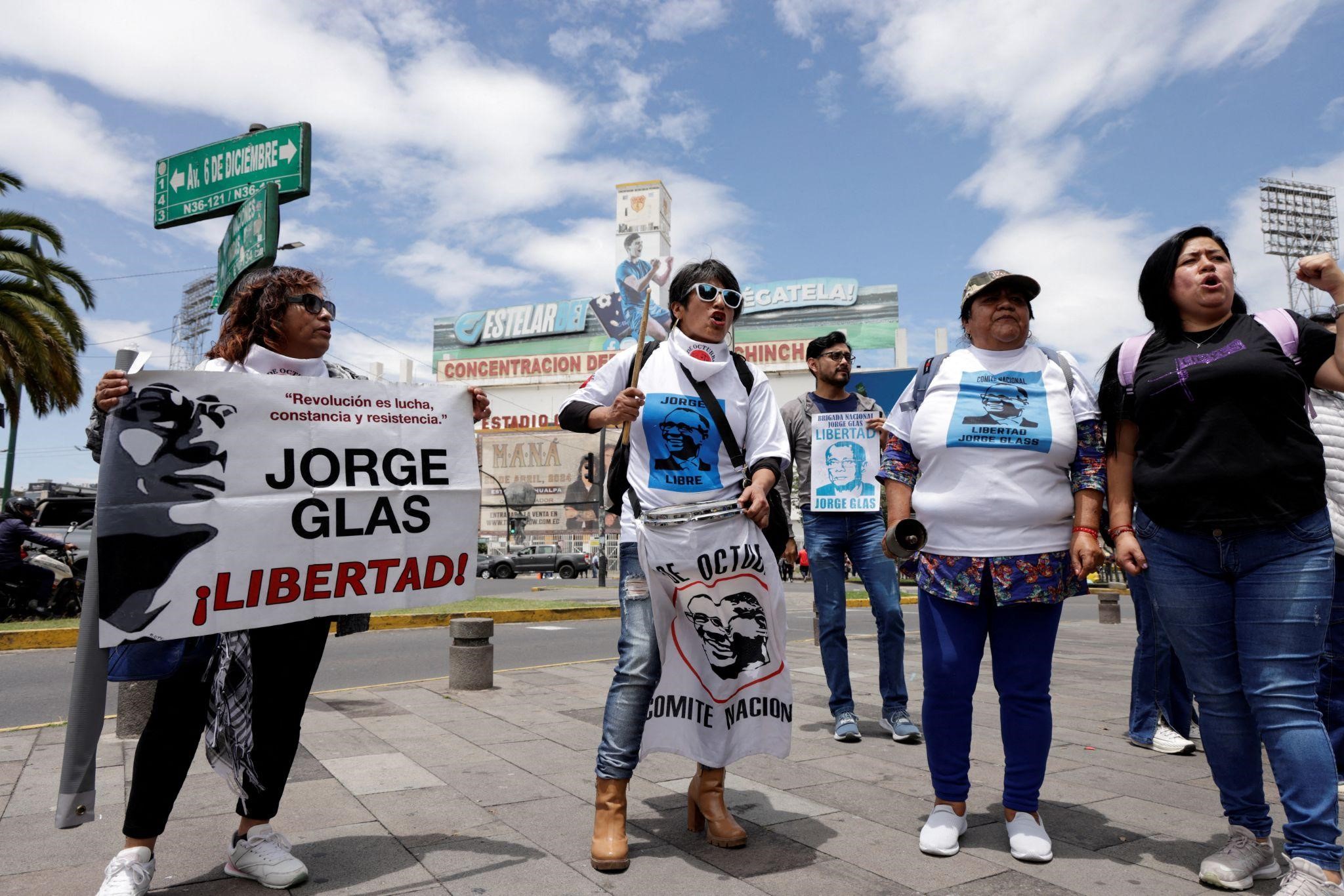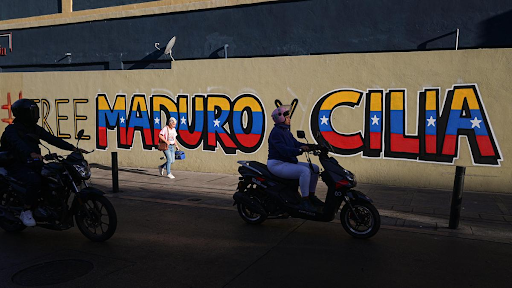Description

Disclaimer: Copyright infringement not intended.
Context
- Mexico has ended its diplomatic ties with the South American nation of Ecuador, following an unprecedented incident in the Ecuadorian capital city of Quito.
Details
- The Ecuador police raided Mexico’s embassy, in a bid to arrest a former Vice President who had been granted asylum there.
- The Mexican President said that former Ecuadorian Vice President Jorge Glas faces “persecution and harassment” and described Ecuador’s actions as “a flagrant violation of international law and the sovereignty of Mexico.”
- Ecuador has claimed that “It is not legal to grant asylum to people convicted of common crimes and by competent courts.”
The main cause of conflict and vendetta
- Ideological war
- The main cause of the conflicting situation claimed to be that Mexican President Obrador is aiming to replace the ruling government in Quito with the left-leaning opposition party.
- In South America, socialism was championed for long by countries from the 1990s to 2000s, after colonialism ended. This led to intra-region cooperation and solidarity among governments in the continent. This led to ideological cooperation between the two continents.
- Mexico's role in the drug trade
- Mexico’s prominent role in the drug trade in the South American region has led to violence over the years. This has again raised the conflict between the two countries.
The 1961 Vienna Convention on Diplomatic Relations lays down the rules of engagement between countries.

Article 22 of the convention has three important provisions
- “The premises of the mission shall be inviolable. The agents of the receiving State may not enter them, except with the consent of the head of the mission.” Here, “mission” refers to the diplomats, the staff, and other representatives in a host country.
- “The receiving State is under a special duty to take all appropriate steps to protect the premises of the mission against any intrusion or damage and to prevent any disturbance of the peace of the mission or impairment of its dignity.”
- “The premises of the mission, their furnishings and other property thereon and the means of transport of the mission shall be immune from search, requisition, attachment or execution.”
The Vienna Convention on Consular Relations, 1963, similarly speaks of how the consent of the head of the consular post is required for authorities of the receiving state to enter it.
Source: https://indianexpress.com/article/explained/explained-global/mexico-suspends-ties-ecuador-embassy-raids-9256265/
|
PRACTICE QUESTION
Q. Consider the following statements about “The Vienna Convention on Diplomatic Relations, 1961”.
- As per the convention, The agents of the receiving State may not enter them, except with the consent of the head of the mission.
- Only the diplomats, not the premises of the mission, their furnishings, and other property thereon of the mission shall be immune from search, requisition, attachment, or execution.
Which of the above statements is/are correct?
- 1 only
- 2 only
- Both
- None
Answer- A
|










